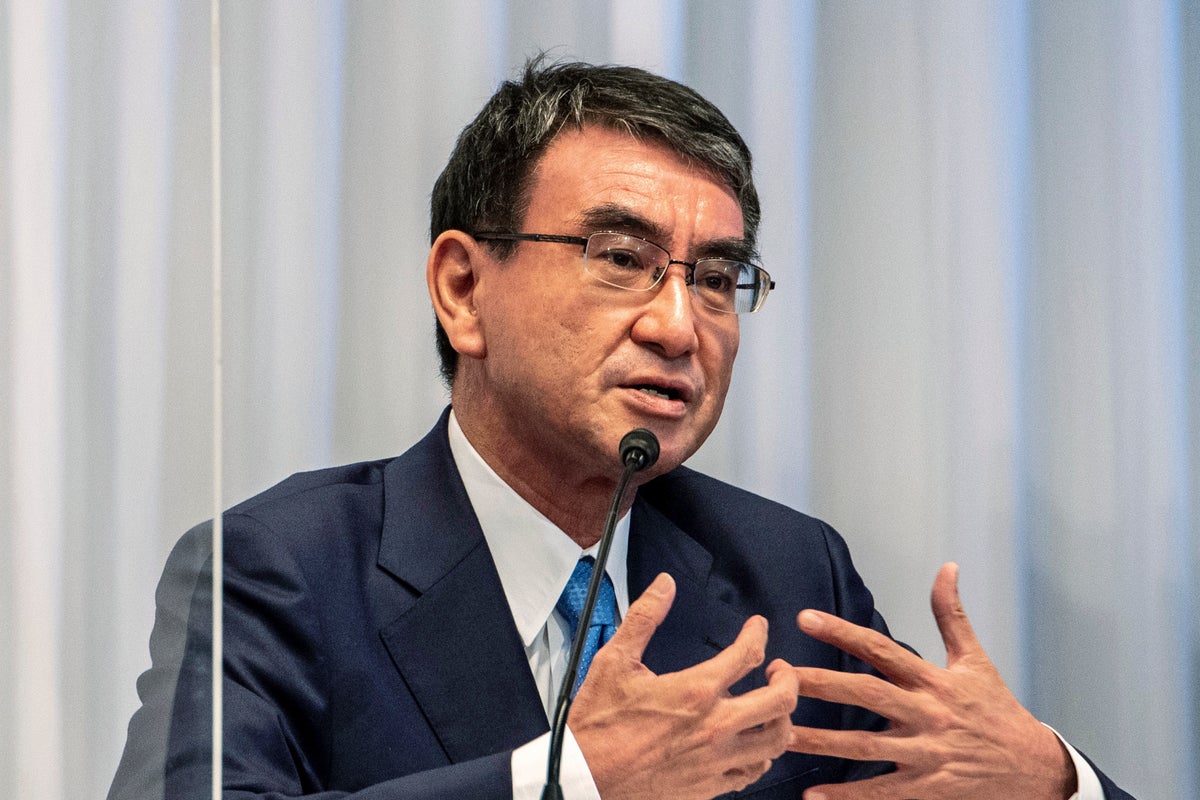
The politician tapped to help Japan keep pace with the digital age has his work cut out for him.
After all, the nation known for Nintendo games, Lexus sportscars and other gadgetry galore also loves the fax machine and the traditional “hanko” seals that work as analog signatures.
But Digital Minister Taro Kono has a reputation for no-nonsense action and for defying vested interests in high places.
“I have no intention of playing coordinator,” he told reporters in a small briefing that was, aptly, conducted online Friday.
“If people don’t listen, I am going to beat them up,” he added with a laugh.
Japan ranked 28th among 64 nations in digital competitiveness in 2021, little changed from five years before, according to a study by IMD, a Swiss-based independent academic organization, which looked at how well equipped nations are to encourage technological development and to leverage them for the future. The U.S. was No. 1, China No. 15.
Kono, a former foreign minister and defense minister, has flaunted his digital savvy for years.
Kono’s Japanese Twitter account, which has drawn 2.5 million followers, features everything from a bowling video to policy commentary. Fluent in English, having attended Georgetown University, he also has an English Twitter account with 70,000 followers.
In a YouTube video last month, he urged people to get a My Number Card, a digital identity card for Japanese citizens and residents that they can use for online government applications and link to a driver’s license, library card or online banking.
But Kono knows it will take more than social media stardom to wrest Japan out of its analog doldrums. He noted the endeavor doesn’t have to be complicated; people will naturally choose what’s convenient.
“Even a child knows that a seal doesn’t really work as personal identification,” he said, while adding that he loves Japanese seals as craftwork.
“There is a mindset that it’s someone else’s problem,” he said of society’s complacency.
During the coronavirus pandemic, when remote working became widespread around the world, Japanese realized how far behind they had fallen, Kono said.
The Digital Agency was set up in Japan last year to nurture competitiveness in digital technology.
Some skepticism remains. Critics say the idea of “a digital transformation” is already outdated and only Japan is still talking so much about it.
In 2018, the minister in charge of cybersecurity, Yoshitaka Sakurada, became a target of ridicule when he didn’t know what a USB port was.
Yet technology experts have pinned great hopes for what Kono might achieve. Kono has always stood apart among ruling Liberal Democratic Party lawmakers. His father was a prominent lawmaker known as a maverick. His grandfather was also a legendary politician.
And rock the boat is what Kono needs to do.
His agency has shown by example by becoming more open and diverse, adding people from the private sector and other walks of life who may have ideas on the change Japan so critically needs.
What will be his benchmark measure for success? “When there are smiles everywhere,” Kono said.






